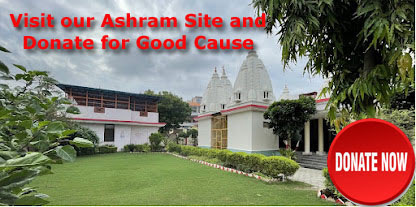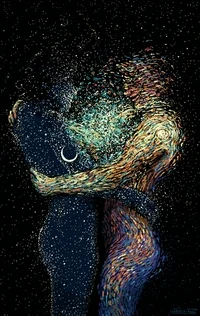Karwa Chauth, a beloved festival celebrated by married women across Northern India, is a symbol of love, devotion, and prayer for the long life and prosperity of their husbands. The festival holds deep cultural roots, combining traditional customs with spiritual beliefs, while also bearing a fascinating astrological connection.
A traditional Karwa Chauth scene showing a woman dressed in a red saree holding a puja thali, standing on a terrace under a bright full moon, symbolizing the spiritual and astrological connection of the festival
The Cultural Essence of Karwa Chauth
On this day, women fast from sunrise until they catch a glimpse of the moon at night. This fast is observed without food or water, making it one of the most difficult yet revered rituals in Hindu tradition. Women dress up in their finest clothes, often donning bridal-like attire and applying intricate mehendi (henna) on their hands. The fast is broken when the wife sees the moon and her husband offers her water, symbolizing the husband’s role in sustaining and protecting his wife.
This devotion isn’t just a gesture of love but is rooted in the ancient concept of "Pati-vrata", where the wife dedicates herself to the well-being of her husband. The act of fasting is believed to strengthen the bond between husband and wife, creating a spiritual connection between them.
The Astrological Significance: The Power of Celestial Influence
While Karwa Chauth is a cultural festival, its astrological underpinnings are equally important. The fast is observed on the Chaturthi Tithi (fourth day) of the Krishna Paksha (waning phase of the moon) in the Hindu month of Kartik. The day holds astrological significance as women pray to the Moon, which plays a key role in Vedic astrology.
The Moon, a planet associated with emotions, mind, and nurturing qualities, governs the mental and emotional harmony in relationships. By fasting until the moon rises, women align themselves with the calming and nurturing energy of this celestial body, which in turn positively affects their relationship, bringing peace, love, and longevity into their marriage.
Fasting and the Shared Destiny of Marriage
In Vedic astrology, marriage is seen as a union of destinies. The 7th house in both the wife’s and the husband’s horoscope represents partnerships and marital harmony. By observing Karwa Chauth and offering prayers, a woman enhances the positive influences in both her and her husband’s 7th house. The act of fasting is believed to draw cosmic energy that strengthens the relationship, benefiting the couple’s shared destiny.
Mars and Venus: The Cosmic Dance of Male and Female Energies
Astrologically, the planets Mars and Venus represent the male and female principles in a horoscope. Mars, symbolizing strength and vitality, is considered the husband’s planet in the wife’s chart. Similarly, Venus represents love and beauty and is seen as the wife’s planet in the husband’s chart.
By fasting on Karwa Chauth, a wife enhances Mars’s energy, thus boosting her husband’s vitality, health, and protection. This energetic balance is believed to contribute to the longevity and harmony of the relationship.
The Moon and Nakshatras: The Lunar Influence
During Karwa Chauth, the moon passes through specific Nakshatras (lunar mansions), which are astrologically significant for relationships. These Nakshatras are believed to channel positive energies that nurture the emotional bond between husband and wife. By fasting and praying to the moon, a woman amplifies these energies, ensuring emotional balance and happiness in her marriage.
Strengthening the 8th House: Life-Span and Longevity
The 8th house in astrology governs life-span, transformation, and longevity. Through fasting, a wife purifies and strengthens her own 8th house, which is believed to extend her husband’s life and protect him from negative forces. As their destinies are intertwined, the positive energy generated through the fast also impacts the husband's horoscope, particularly the areas related to health and longevity.
Karmic Influence and Planetary Blessings
The fast is not only seen as a physical sacrifice but also a karmic offering. According to Vedic astrology, the karma of a husband and wife is shared, and by fasting, the wife accumulates spiritual merit that reduces negative karma affecting her husband. This purification process ensures a more balanced and harmonious life together.
Additionally, prayers to the Navagrahas (nine planets) are often performed during the fast, seeking their blessings to strengthen the planetary influences that govern health, wealth, and well-being in the husband’s horoscope.
Conclusion: The Sacred Union of Devotion and Astrology
Karwa Chauth is not merely a cultural tradition but a profound expression of love, devotion, and astrological awareness. By fasting and offering prayers to the moon and planets, women channel cosmic energy that positively influences their husbands' health and longevity. This age-old practice symbolizes the powerful connection between marital love and the cosmic forces that govern life and relationships.
Through the sacred act of fasting, women not only express their devotion but also align their marital bond with the stars, planets, and moon, drawing on ancient wisdom to ensure the prosperity and harmony of their shared life.

















































No comments:
Post a Comment